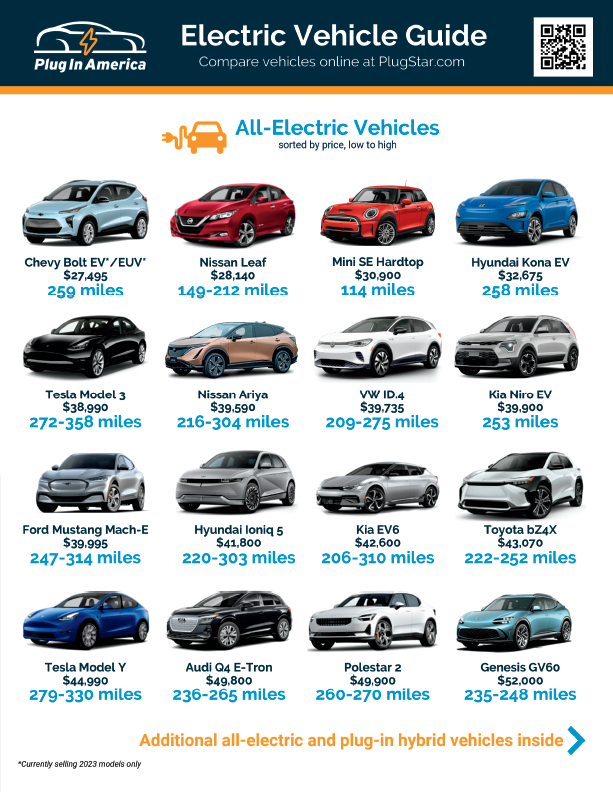7 Trends Daily
Stay updated with the latest insights and trends across various sectors.
Charge Into the Future with Electric Cars
Discover the electrifying world of electric cars and how they're revolutionizing the future of transportation—charge up your knowledge today!
The Top 5 Benefits of Switching to Electric Cars
Switching to electric cars offers numerous advantages that can benefit both the individual and the environment. One of the most significant benefits is the reduction in greenhouse gas emissions. According to the U.S. Environmental Protection Agency, electric vehicles (EVs) can significantly decrease carbon footprints compared to traditional gasoline-powered cars. This transportation shift plays a critical role in combating climate change and promoting cleaner air, making urban areas healthier to live in.
In addition to environmental benefits, electric cars can lead to substantial cost savings for their owners. While the initial purchase price may be higher, the operating costs are generally much lower. According to a report from the U.S. Department of Energy, EVs can be cheaper to fuel and maintain due to fewer moving parts and lower energy costs. Furthermore, many governments offer incentives for EV purchases, such as tax credits and rebates, further enhancing their appeal. Making the switch not only benefits personal finances but also contributes to a more sustainable future.

How Electric Cars Are Shaping the Future of Transportation
The rise of electric cars is not just a trend; it's a revolution in the realm of transportation. As cities around the world grapple with pollution and climate change, electric vehicles (EVs) offer a cleaner alternative, significantly reducing carbon emissions. According to a report from the International Energy Agency, the global stock of electric cars reached over 16 million in 2020, and that number continues to grow. This shift is highlighting the need for enhanced charging infrastructure, which is being rapidly developed alongside the EV market, enabling drivers to transition from traditional fossil fuel vehicles to electric models with greater convenience and confidence.
Moreover, the incorporation of electric cars into urban planning is reshaping the future of transportation systems. Cities are increasingly investing in EV-friendly policies, such as providing incentives for electric car purchases and developing dedicated charging stations. A fascinating example can be seen in Singapore, which aims to establish 10,000 charging points by 2025. Not only do electric cars promote cleaner air and sustainable living, but they also encourage innovation in public transportation and smart city designs, paving the way for a future where mobility is more efficient and environmentally friendly.
What You Need to Know About Charging Infrastructure for Electric Vehicles
As electric vehicles (EVs) gain popularity, understanding the charging infrastructure becomes increasingly vital for consumers and businesses alike. The charging infrastructure is primarily composed of public and private charging stations, each serving a unique purpose. Public charging stations can be found in various locations, including commercial areas, parking lots, and along highways. These locations are typically equipped with different types of chargers, such as Level 2 chargers, which provide a moderate charging speed, and DC fast chargers, designed for quick top-ups on long journeys. For a comprehensive overview of charger types and their functions, check out this resource from the U.S. Department of Energy.
Moreover, the deployment of charging infrastructure is crucial for fostering consumer confidence in EV adoption. Factors influencing charging station accessibility include location, availability, and pricing. As more businesses recognize the demand for EV charging solutions, many are investing in the installation of private chargers on their premises, making it convenient for employees and customers alike. To learn more about the evolving landscape of EV charging and the role of governmental policies in enhancing infrastructure development, visit the Alliance for Transportation Innovation.